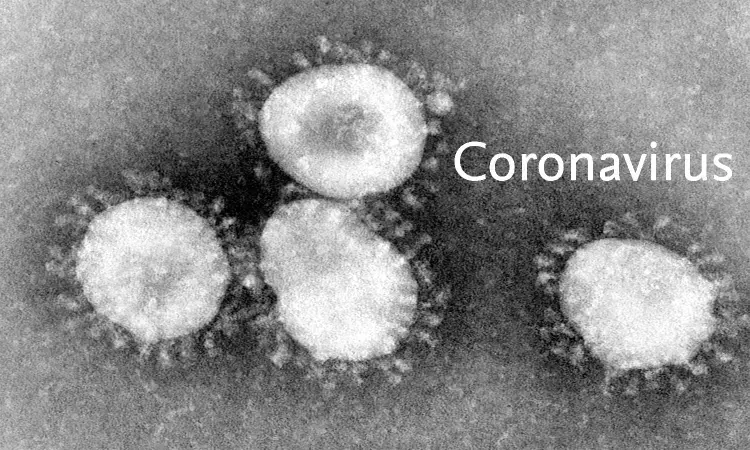- Home
- Medical news & Guidelines
- Anesthesiology
- Cardiology and CTVS
- Critical Care
- Dentistry
- Dermatology
- Diabetes and Endocrinology
- ENT
- Gastroenterology
- Medicine
- Nephrology
- Neurology
- Obstretics-Gynaecology
- Oncology
- Ophthalmology
- Orthopaedics
- Pediatrics-Neonatology
- Psychiatry
- Pulmonology
- Radiology
- Surgery
- Urology
- Laboratory Medicine
- Diet
- Nursing
- Paramedical
- Physiotherapy
- Health news
- Fact Check
- Bone Health Fact Check
- Brain Health Fact Check
- Cancer Related Fact Check
- Child Care Fact Check
- Dental and oral health fact check
- Diabetes and metabolic health fact check
- Diet and Nutrition Fact Check
- Eye and ENT Care Fact Check
- Fitness fact check
- Gut health fact check
- Heart health fact check
- Kidney health fact check
- Medical education fact check
- Men's health fact check
- Respiratory fact check
- Skin and hair care fact check
- Vaccine and Immunization fact check
- Women's health fact check
- AYUSH
- State News
- Andaman and Nicobar Islands
- Andhra Pradesh
- Arunachal Pradesh
- Assam
- Bihar
- Chandigarh
- Chattisgarh
- Dadra and Nagar Haveli
- Daman and Diu
- Delhi
- Goa
- Gujarat
- Haryana
- Himachal Pradesh
- Jammu & Kashmir
- Jharkhand
- Karnataka
- Kerala
- Ladakh
- Lakshadweep
- Madhya Pradesh
- Maharashtra
- Manipur
- Meghalaya
- Mizoram
- Nagaland
- Odisha
- Puducherry
- Punjab
- Rajasthan
- Sikkim
- Tamil Nadu
- Telangana
- Tripura
- Uttar Pradesh
- Uttrakhand
- West Bengal
- Medical Education
- Industry
MERS vaccine may hold promise for COVID-19 vaccine, shows efficacy in mice

MERS (Middle East Respiratory Syndrome) and COVID-19 are both caused by coronaviruses
Researchers at the University of Iowa and the University of Georgia have developed a vaccine that fully protects mice against a lethal dose of MERS, a close cousin of the SARS-CoV2 coronavirus that causes COVID-19.
The vaccine uses a harmless virus to deliver a MERS coronavirus protein into cells to generate an immune response, and may hold promise for developing vaccines against other coronaviruses diseases, including COVID-19.
The team led by Paul McCray, MD, at the UI Carver College of Medicine, and Biao He, PhD, at the University of Georgia College of Veterinary Medicine, tested a MERS vaccine candidate in mice engineered to be susceptible to the MERS coronavirus. The vaccine is an innocuous parainfluenza virus (PIV5) carrying the "spike" protein that MERS uses to infect cells. All the vaccinated mice survived a lethal dose of the MERS coronavirus. The results of the study were published April 7 in the journal mBio.
"Our new study indicates that PIV5 may be a useful vaccine platform for emerging coronavirus diseases, including SARS-CoV-2, the virus causing the ongoing COVID-19 pandemic," says McCray, UI professor of pediatrics. "Using the same strategy, vaccine candidates based on PIV5 expressing the spike protein of SARS-CoV-2 have been generated. We are planning more studies in animals to test the ability of PIV5-based vaccines in preventing disease caused by SARS-CoV-2."
MERS (Middle East Respiratory Syndrome) and COVID-19 are both caused by coronaviruses. MERS is deadlier and is fatal in about one third of known cases, but there have been only 2,494 cases since 2012, when the virus first emerged. In contrast, there have been over 1.25 million confirmed cases of COVID-19 worldwide since it first emerged in late 2019 in Wuhan, China, and almost 70,000 people have died from the disease.
The study found that just one, relatively low dose of the vaccine given to the mice intranasally (inhaled through the nose) was sufficient to fully protect all the treated mice from a lethal dose of MERS coronavirus.
When the researchers analyzed the immune responses generated by the vaccine, they found that both antibodies and protective T cells were produced. However, the antibody response was quite weak and it seems most likely that the vaccine's protective effect is due to the T cell response in the mouse lungs.
The researchers note several factors that make PIV5 expressing a coronavirus spike protein an appealing platform for vaccine development against emerging coronaviruses. First, PIV5 can infect many different mammals, including humans, without causing disease. PIV5 is also being investigated as a vaccine for other respiratory diseases including respiratory syncytial virus (RSV) and influenza. Second, the fact that a low dose of the vaccine was sufficient to protect the mice might be beneficial for creating enough vaccine for mass immunization. And finally, the vaccine in the current study was the most effective MERS vaccine to date in animal models of the disease.
For more details click on the link: http://dx.doi.org/10.1128/mBio.00554-20
Hina Zahid Joined Medical Dialogue in 2017 with a passion to work as a Reporter. She coordinates with various national and international journals and association and covers all the stories related to Medical guidelines, Medical Journals, rare medical surgeries as well as all the updates in the medical field. Email: editorial@medicaldialogues.in. Contact no. 011-43720751
Dr Kamal Kant Kohli-MBBS, DTCD- a chest specialist with more than 30 years of practice and a flair for writing clinical articles, Dr Kamal Kant Kohli joined Medical Dialogues as a Chief Editor of Medical News. Besides writing articles, as an editor, he proofreads and verifies all the medical content published on Medical Dialogues including those coming from journals, studies,medical conferences,guidelines etc. Email: drkohli@medicaldialogues.in. Contact no. 011-43720751


